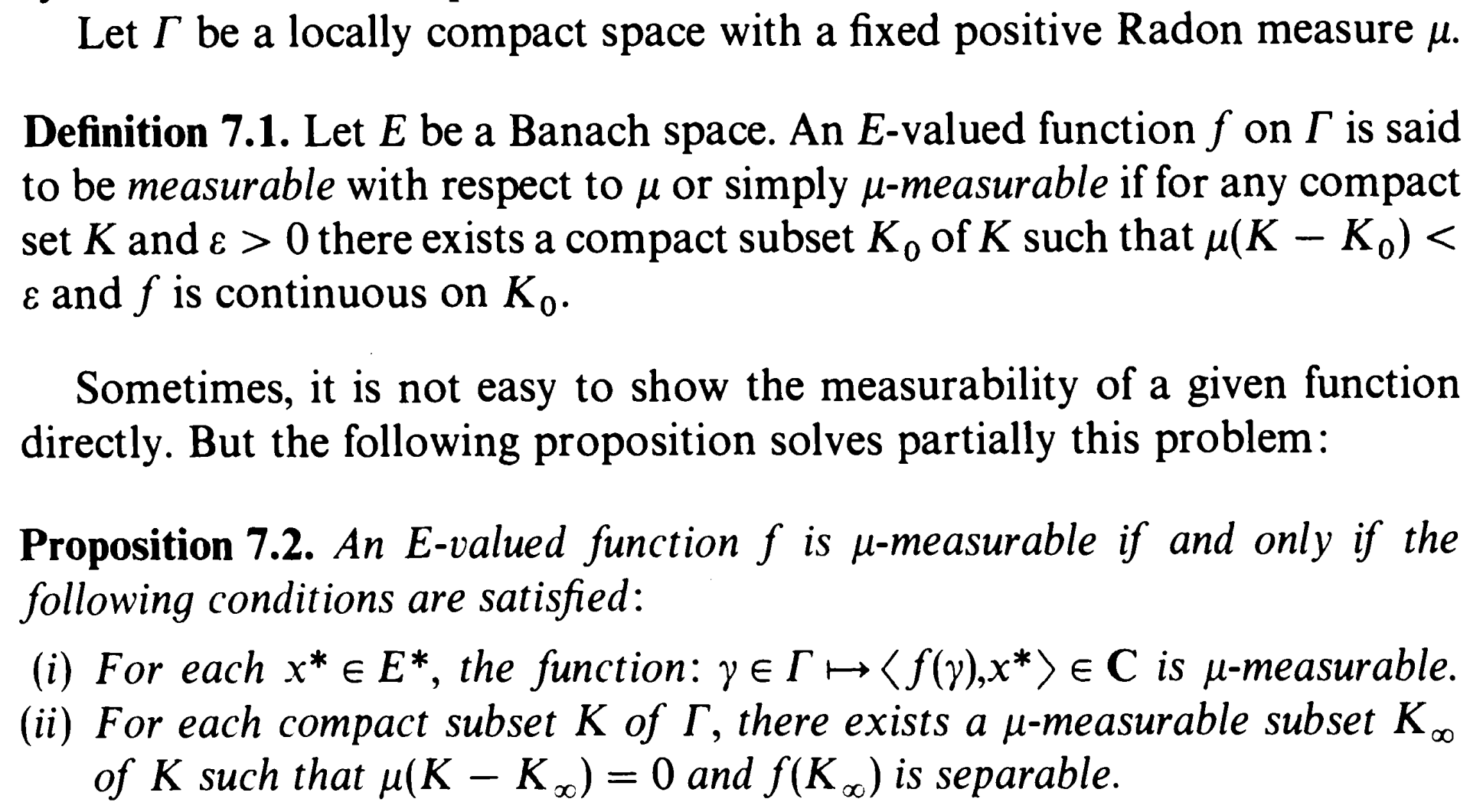I initially asked on MSE, but did not get an answer there.
Consider the following proposition from chapter IV of Takesaki's "Theory of operator algebras I" (more context/definitions in the picture below):
I'm a bit confused by two aspects of this statement.
(1) Let $f: \Gamma \to E$ be $\mu$-measurable (as in definition 7.1 of this book). How does $$\|f\|_p^p := \int_\Gamma \|f(\gamma)\|^p d\mu(\gamma)$$
make sense? Don't we need that $\|f\|: \Gamma \to \mathbb{C}$ is measurable in the usualusual measure theoretical sense for this integral to make sense?
(2) When Takesaki mentions the space of $E$-valued $\mu$-measurable functions $f$ with $\|f\|_p < \infty$, shouldn't we take a further quotient vector space with the subspace $$N:= \{f : \|f\|_p = 0\}$$ to make sure that we end up with a normed space (as opposed to a seminormed space)?
For context, here is the relevant part with definitions/results in Takesaki's book:


